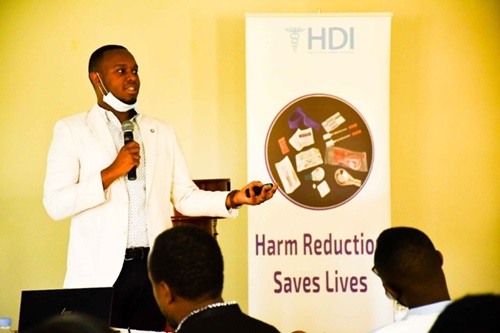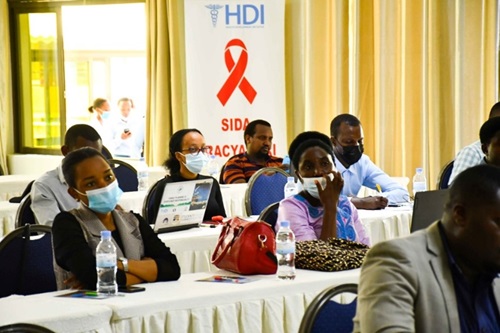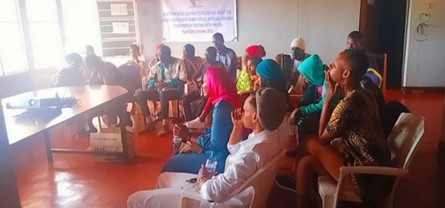
The Necessity of Providing Care to People who Inject Drugs in Rwanda
Dr. Jean Olivier Twahirwa Rwema, 2021-2022 IIE Centennial Fellow
Since December 2021, my primary focus has been to generate foundational data and epidemiologic insights on which future health research and implementation for People Who Inject Drugs in Rwanda (PWID) can build on. This was done through research, dissemination events, advocacy meetings and training sessions with leaders in the health and other sectors in Rwanda, as well as PWID themselves. Furthermore, on a personal level, my IIE Centennial Fellowship was an excellent professional development opportunity for me.
The first major contribution of my fellowship has been to support the publication of the first publication focused on the epidemiology of HIV and injection drug practices among PWID in Kigali, Rwanda. This paper was published in the Harm Reduction Journal, a leading journal in the field of drug addiction. In collaboration with various national and international collaborators, we characterized the epidemiology of HIV infection and injection practices among PWID in Kigali, Rwanda. In this study, we found that PWID had a prevalence of HIV that was three times higher than the national average. Furthermore, we identified a high a burden of behaviors known to increase HIV and other infections’ risk, including high levels of needle sharing during injection and needle reuse. Finally, our results indicated that PWID may be experiencing high rates of fatal drug overdose. Our study provided strong evidence of the need to focus on this marginalized population in Rwanda.
After the publication of our study, I traveled to Kigali to conduct various dissemination and advocacy sessions in collaboration with Health Development Initiative (HDI). These included a large dissemination session organized in January 2022 in which we discussed the implications of our findings with more than 30 representatives from a range of health organizations working in Rwanda. These organizations included the Ministry of Health and Ministry of Justice; the Rwanda National Police and Correctional Services; international agencies like the USAID, UNAIDS, CDC, GIZ, CHAI; and numerous non-governmental organizations and hospitals (Figure 1&2).


In addition to disseminating the study results to various leaders from public, private, and other non-governmental institutions, this fellowship provided an opportunity to disseminate our study findings to PWID themselves and to conduct several training sessions to improve their knowledge on safe injection equipment, overdose prevention, and addiction services in Rwanda. During the training sessions, PWID were trained on HIV prevention and treatment services and were provided with HIV self-testing kits that they can use to check their HIV status.

Taken together, these activities had several tangible impacts.
- We provided evidence that injection drug use was a growing social phenomenon in Rwanda that warranted special focus and programming.
- We showed that PWID were at high risk of HIV infection and discussed future research and programmatic needs.
- We provided a forum for discussing the feasibility of providing harm reduction interventions and other health and social services for PWID in Rwanda.
- We trained PWID on safe injection practices, overdose prevention, HIV prevention, and treatment and addiction services.
Personally, this fellowship was also an excellent professional development opportunity. First, the application process improved my grant writing abilities, and I was able to get involved in further successful research grant submissions after securing my IIE Centennial Fellowship. Secondly, this fellowship allowed me to expand my research portfolio by publishing my first research paper focusing on PWID. Finally, it allowed me to strengthen my professional collaborations with leaders in the healthcare sector in Rwanda and with researchers from academic and nonacademic institutions in Rwanda and in the USA. Going forward, I plan to leverage my existing and future collaborations to keep advancing health research among PWID and to advocate for their right to optimal health in Rwanda.